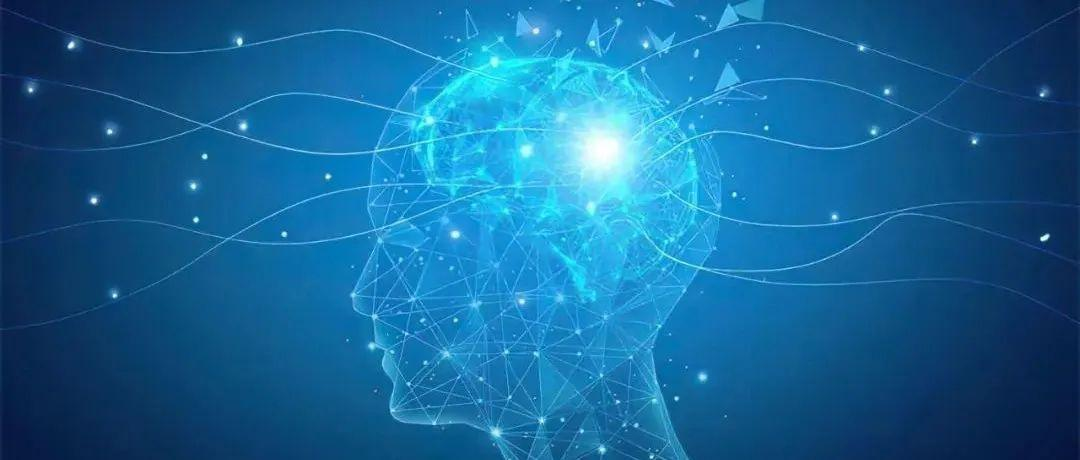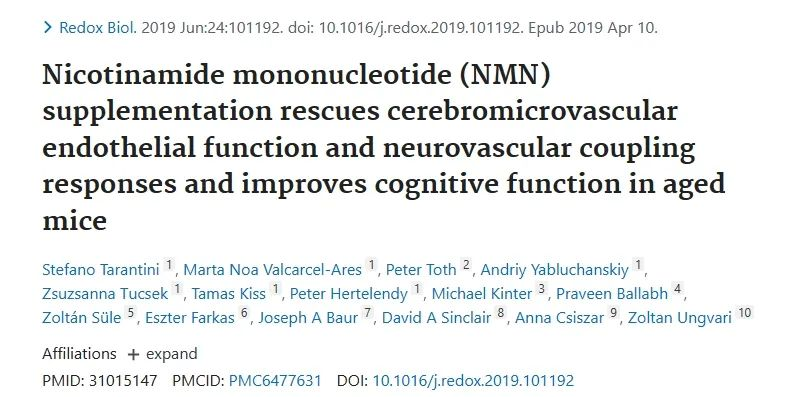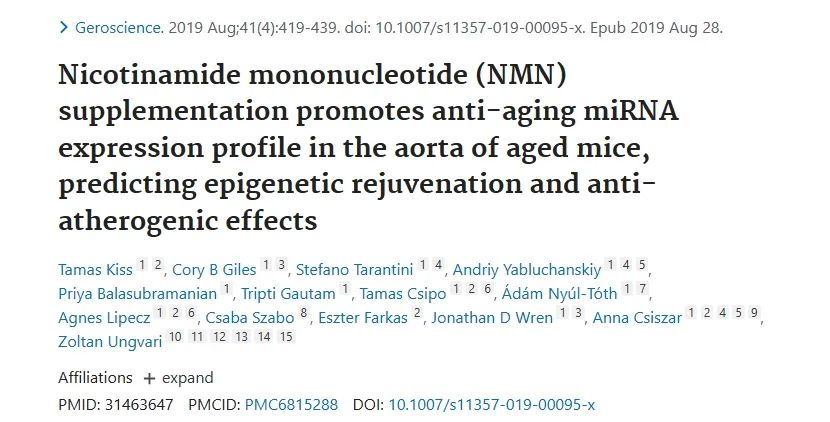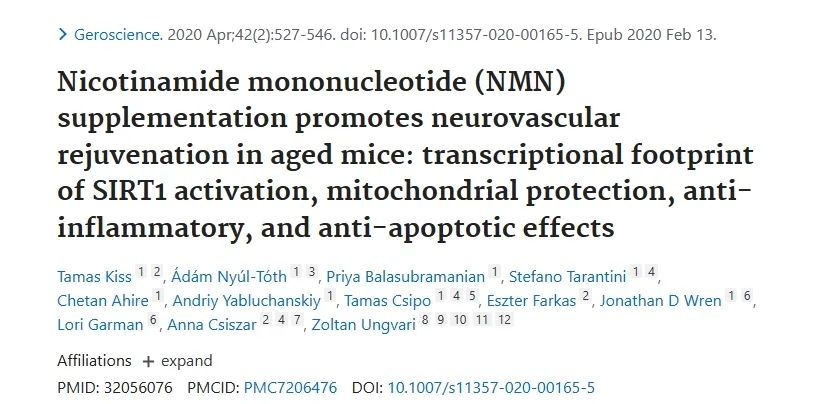
NMN - Make the brain "younger"
Time flies and we get older. There are always situations in our lives that make us turn around and forget things. People always feel like they are getting older when our memories fade. But in fact, NMN can keep the brain "young".

1. NMN improves neurovascular coupling response
Prevent vascular dementia

Modulation of cerebral blood flow (CBF) on neuronal activity through neurovascular coupling (NVC) plays a critical role in maintaining healthy cognitive function. With age, increased oxidative stress and cerebral microvascular endothelial dysfunction can damage the NVC, leading to cognitive decline.
In 2019, a foreign research team published a study in "Redox Biology". The researchers used 3-month-old and 24-month-old C57BL/6 mice as experimental subjects. Mice aged 24 months were given 500 mg daily. Take NMN kg for 14 consecutive days.
Studies have found that NMN treatment can restore NAD, mitochondrial energy and reduce mtROS in aging brain microvascular endothelial cells; NMN supplementation can reverse brain vascular endothelial dysfunction caused by aging, improve the NVC response of aged mice, and improve the cognition of aged mice. The function is more stable. Knowledge is improved. The study also clarified the specific mechanism of NMN in preventing vascular dementia: activating Sirtuins activity → reducing mitochondrial ROS → improving neurovascular coupling (NVC) response → significantly protecting cerebral blood vessels.
2. NMN reverses the levels of miRNA in blood vessels
Reverse vascular aging

Understanding the molecular mechanisms of vascular aging is critical for the development of novel interventional strategies for the treatment and prevention of age-related vascular diseases. Recent studies have demonstrated that vascular aging is characterized by NAD+ depletion, and microRNA (miRNA) is also one of the biomarkers of aging.
In 2019, a foreign research team published relevant research in "Geroscience". The researchers used 3-month-old and 24-month-old C57BL/6 mice as experimental subjects. Among them, 24-month-old mice took 500mg/kg daily. NMN treatment was performed for 14 consecutive days; and the miRNA signature in the aorta was compared with that in the aorta of untreated young and old control mice.
The study found that there were large differences in miRNA expression levels in young and old vascular endothelium, and administration of NMN reversed age-related changes in miRNA expression profiles. In aged mice, NMN treatment had significant vasoprotective effects, improved endothelium-dependent vasodilation, alleviated oxidative stress, and rescued age-related gene expression changes. The protective effect of NMN on vascular function is not only related to the restoration of cellular NAD+ levels, but also to the anti-aging changes in the miRNA expression profile in the aorta of aging mice. This study also showed that the predicted regulatory effects of NMN-induced differentially expressed miRNAs in aging blood vessels include anti-atherosclerotic effects and epigenetic rejuvenation effects.
3. NMN reverses the effects of aging on the neurovascular unit
Restore neurovascular health

Aging-induced structural and functional changes in the neurovascular unit lead to impaired neurovascular coupling, dysregulated cerebral blood flow, and increased neuroinflammation, all of which have important implications for the pathogenesis of age-related vascular cognitive impairment (VCI).
In 2020, a foreign research team published a study in "GeroScience". The researchers treated 24-month-old C57BL/6 mice with nicotinamide mononucleotide (NMN) for 14 days. Transcriptome analysis of neurovascular unit cell-enriched preparations by RNA-seq. Neurovascular gene expression profiles of NMN-treated aged mice were compared with untreated young and aged control mice.
The study found that about 55% of the neurovascular units in old mice treated with NMN returned to their youthful levels. NMN reverses age-related mitochondrial dysregulation in the neurovascular unit. The transcriptional footprint of NMN treatment showed that increased NAD+ levels promoted SIRT1 activation in the neurovascular unit and that the neurovascular protective effects of NMN were mediated through the induction of genes involved in mitochondrial regeneration, anti-inflammatory, and anti-apoptotic pathways. Studies have also shown that NMN can reverse age-related cellular changes in the neurovascular unit, especially gene activity related to Sirtuins proteins and mitochondrial function; NMN treatment can increase blood flow and improve cognitive abilities.
Research on NMN is ongoing. Although there are currently no relevant clinical studies, the existence of NMN may become a breakthrough in brain cognition in the future. The editor hopes that in the future, when scientists make breakthroughs in brain cognition, the moment everyone loses their memory will become a beautiful memory in life.
Post time: Dec-03-2023


